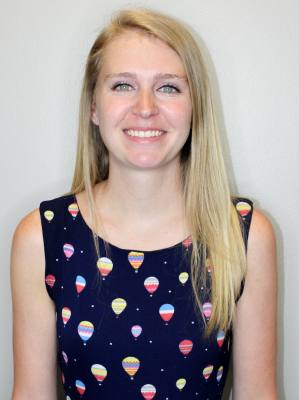Born in Casablanca, Morocco, on Thanksgiving Day in 1961, Charles Dupre was adopted on his birthday by a couple stationed at a nearby Air Force base.
After moving back to the U.S. at age 3, Dupre and his family lived in Maine; San Antonio, Texas; and Missouri. Dupre’s mother died when he was 5 years old, and when he was 7 years old his father gave up custody. Dupre went to live in a children’s home until he was 18 years old. Going to public schools and having supportive teachers sparked his passion for education, Dupre said.
“It was a hard experience being alone in that environment, but I had good people taking care of me,” he said. “I had good teachers and educators who really invested in me. I believe it comes full-circle.”
Dupre went on to get his first degree from Harding University in Arkansas and got his first job as an auditor at Arthur Andersen LLP in downtown Houston.
In 1995, Dupre became an auditor in Fort Bend ISD and by 2000 he was chief financial officer. After moving to the Austin area to be deputy superintendent—and eventually superintendent—of Pflugerville ISD, Dupre came back to FBISD as superintendent in 2013.
“Everywhere I go, our kids love their schools,” he said. “Wherever I’m at I run into them, and it means a lot to me that they know who I am. I really want our kids to know that I’m listening to them. I’m listening to their parents. I feel a very personal responsibility to make sure every kid achieves their full potential.”
What have been some highlights in your time as FBISD superintendent?
The last two years have had two of the highlights, and that’s winning the H-E-B Excellence in Education large district award and our board winning the H-E-B best board in Texas award last year. As a team in Fort Bend we’ve had to do a lot of work in the last five years, and that is just evidence and affirmation that the work we’re doing is paying off.
We’ve built strong community trust. We’re not perfect, never will be, but people know that we’re collaborative; we’re transparent—when we make mistakes, we’re going to own them. We’re going to get it right and move forward in good, productive way.
What are some of the biggest challenges facing FBISD right now?
The way that our state funds public schools presents a constant challenge because our leaders at the state level have publicly said right here in Sugar Land at a meeting, they don’t really think it’s a priority to do anything different with school finance. With 11,000 employees who work very hard to shape the future of young people, which in turn shapes the future of our communities and our state and our nation, they’ve got to pay attention to the fact it takes money in an ever-changing economy to educate kids.
In what ways is Hurricane Harvey still affecting the district?
The biggest way it’s still affecting us is, people have a pattern; we do this in life: A bad thing happens; we mourn it; we grieve it; and we move on. But the fact is, Harvey has thousands and thousands of people who have not been able to mourn it and grieve it and move on. We still have students who are not in their home. Some will never go back to their home. They’ve been permanently displaced.
We have some who are waiting for the repairs to be done. We have teachers [and] principals who are in that exact same position, and we often don’t think about that. … It’s affecting our teachers and our staff members and their ability to be at work and do their job without that constant concern about getting back to normal.
Where do you hope to see the district in five to 10 years?
We’re behind on maintaining our buildings, and that goes back to the recession from 2008-2010 or ’11 because the district didn’t have a bond between 2007 and 2014. That’s a very long time. There were some things in the 2007 bond that still were not done when I got here in 2013.
What I want to see is a district that has well-maintained facilities and not just maintained looking good, but well-maintained in that every school has got components of the technology equipment, the updated spaces, and things the students and teachers need to engage in learning for today’s kids.
Select your community
Support Us
News
- Austin Metro
-
Houston Metro
- Houston Metro Home
- Bay Area
- Bellaire | Meyerland | West University
- Conroe | Montgomery
- Cy-Fair | Jersey Village
- Cypress
- Heights | River Oaks | Montrose
- Katy | Fulshear
- Lake Houston | Humble | Kingwood
- New Caney | Porter
- Pearland | Friendswood | Manvel
- Spring | Klein
- Sugar Land | Missouri City
- The Woodlands
- Tomball | Magnolia
- Dallas | Fort Worth Metro
- San Antonio Metro






